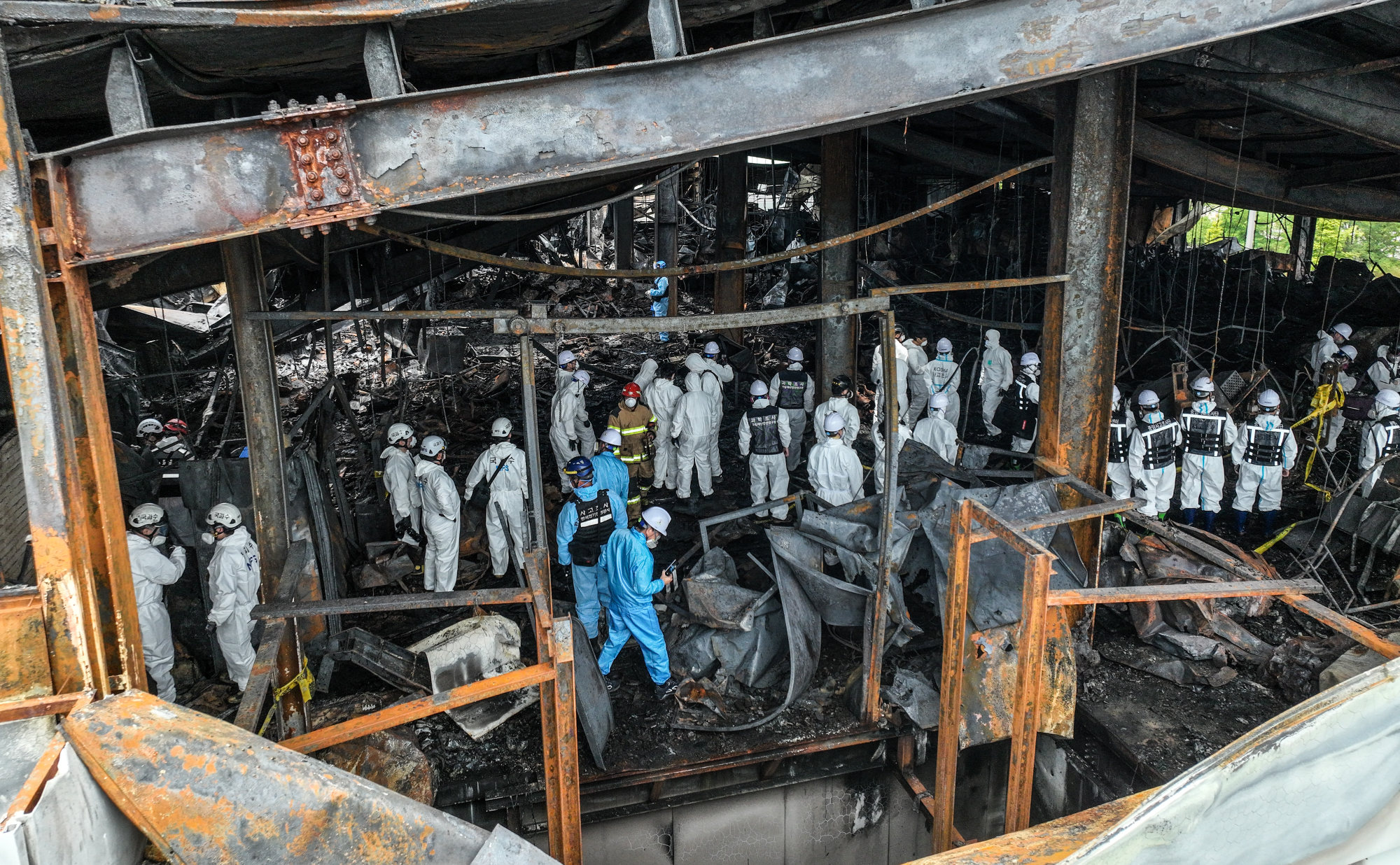South Korean authorities ordered a halt on Wednesday to the operations of a manufacturer of lithium batteries after a fire killed 23 people, as they investigate three company officials for suspected safety violations.
Monday’s fire at unlisted battery maker Aricell was one of the deadliest industrial accidents of recent years. Dozens of South Korean workers lose their lives on the job each year, despite tougher laws and measures to improve safety.
The company in the industrial hub of Hwaseong southwest of Seoul, the capital, was told to shut its only factory for inspection, Min Gil-soo, an official of the labour ministry, told a briefing.
Police raided the company’s offices on Wednesday, the Yonhap news agency said. Authorities did not identify the company officials being investigated, however. Safety code violations can lead to jail terms for fatal accidents.
Aricell Chief Executive Park Soon-kwan apologised on Tuesday for the fire, but said the company had followed all safety regulations and training requirements.
Flames quickly engulfed the factory, where 35,000 lithium batteries were stored, and the spread of toxic smoke probably rendered workers unconscious within seconds, fire officials have said.

Only three of the dead, all of them South Korean men, have been identified. The rest, including 17 Chinese, have yet to be identified as their bodies suffered severe damage in the fire.
Investigators are trying to determine the cause of the blaze, amid questions about Aricell’s hiring of foreign workers on a temporary basis and whether they received adequate safety training.
The office of a lawmaker, Kim Sung-hoi, provided a copy of a March inspection report by the Hwaseong fire department that showed it had flagged serious risks, including possible “rapid combustion” at the building where the fire broke out.
Confirming the inspection report, an official at the fire department said fire officials had also visited the company on June 5 to consult on fire prevention.
Set up in 2020, Aricell has 48 full-time employees and makes lithium primary batteries for sensors and radio communication devices.
It also supplies batteries to the military for use in some communication and crypto devices, a spokesperson for South Korea’s defence procurement agency said.
The agency’s annual safety inspections cover suppliers in some categories, such as firearms and chemicals, but exclude battery makers such as Aricell, the spokesperson added.
Its parent, S-Connect, supplies lithium-ion battery parts to Samsung SDI, one of the country’s major secondary battery makers.


